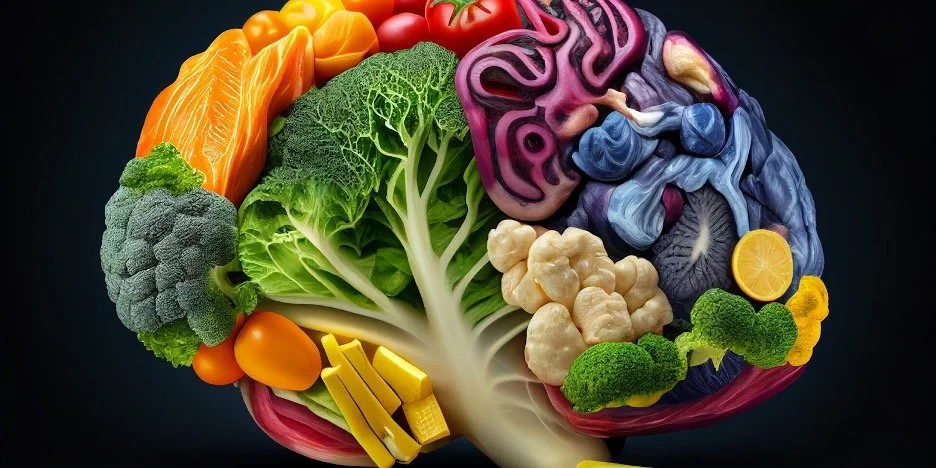Brain Health: Keeping Your Mind Sharp
As time marches on, every part of us changes, and our brains are no exception. Mental function naturally shifts alongside it, and the fear of decline looms large in the minds of many as we age. But hold on – cognitive impairment doesn't have to be destiny! Just like we strengthen our bodies with exercise and good food, we can nurture our minds to stay sharp and vibrant well into our golden years.
Mental Stimulation
Imagine your brain as a lush garden. The more you tend to it, nurture it, and plant new seeds, the more vibrant and resilient it becomes. And when it comes to tending your mental garden, few tools are as powerful as mental stimulation.
Research shows that doing brainy activities is not only enjoyable but also exercises your brain cells. These activities stimulate the formation of new connections between neurons, even encouraging the brain to grow new ones. This creates a phenomenon called neurological plasticity, essentially making your brain more flexible and adaptable.
Think of it like building a reserve of mental strength. By actively stimulating your brain, you're creating a buffer against future cell loss, a natural part of aging. So, the more you engage your mind, the better it can handle the inevitable changes that come with time.
Physical Exercise
Turns out, breaking a sweat isn't just good for your biceps, it's a mental magic potion too! Research shows exercise weaves its magic through tiny blood vessels, delivering oxygen-rich fuel to your brain's thought center. This fuel helps make new brain cells and strengthens connections between them, creating a powerful, flexible network.
The result? An aging brain that's not just surviving, it's thriving! Exercise sharpens your thinking, strengthens memory, and smooths learning curves – it's like adding a cheat code to your mental game.
But the benefits go beyond smarts. Exercise helps with blood pressure, cholesterol, sugar, stress, and boosts your brain. So, lace up your shoes, shake your groove thang, or grab a yoga mat – it's time to invest in your brainpower!
Your Diet
Remember the saying, "you are what you eat"? Well, when it comes to brain health, it's truer than ever! Just like your body thrives on nourishing food, your mind craves the right fuel to stay sharp and resilient. And one culinary style reigns supreme for cognitive health – the Mediterranean diet.
Imagine your brain as a high-performance engine. The Mediterranean diet is like feeding it premium fuel. Packed with fruits, vegetables, fish, nuts, and healthy oils like olive oil, it provides a bounty of brain-boosting nutrients. Omega-3 fats aid brain cell connections, antioxidants shield from harm, and fiber maintains gut health, impacting mental well-being.
The benefits? Studies show that embracing the Mediterranean lifestyle can be a powerful shield against cognitive decline and dementia.
It's like taking out a long-term insurance policy for your brain! Use olive oil on salad, eat salmon instead of red meat, and choose almonds over chips. Your future self will appreciate it.
Don't Abuse Alcohol
Imagine your brain as a finely tuned instrument. Overindulging in alcohol is like throwing a wrench in its delicate gears, potentially leading to cognitive decline and dementia. But fear not, friends! Abstinence is safest, but if you choose to drink, moderation is important for a sharp mind and a happy liver.
Every extra drink you have (beyond the limit of two for men, one for women) adds some static to your mind. It might not be noticeable at first, but over time, the clarity and precision of your thoughts can fade. Studies have shown a clear link between excessive alcohol consumption and an increased risk of cognitive decline, including dementia.
But here's the good news: sticking to moderate levels can actually protect your brain! Research suggests that moderate alcohol consumption may even have some health benefits, like boosting heart health and reducing stress. It's all about finding the sweet spot and listening to your body.
Care for your Emotions
Imagine your brain as a bustling city. When emotions run amok, like anxious tigers prowling the streets, it's hard for thoughts to flow smoothly and tasks to be accomplished. Taking care of your emotions is as important for your brain's performance as solving puzzles and doing crosswords.
Anxiety, depression, lack of sleep, and tiredness can affect your mental abilities, causing worse performance on cognitive tests. A low score doesn't guarantee future brain problems, but it is a warning sign. Good mental health and quality sleep are important for a healthy mind.
Taking care of your emotions is important for your future cognitive health, not just for feeling good now. Managing stress, prioritizing sleep, and taking care of your mental well-being lay the groundwork for a sharper mind. They also contribute to a more positive perspective and a joyful and fulfilling life.
Bottom Line
So, there you have it. The key to keeping your brain sharp and vibrant isn't about fearing decline, it's about active engagement and nurturing. Stay physically active and consume a nutritious diet. Moderate your alcohol intake and ensure emotional well-being.
These practices will contribute to your mental strength as you age. This will help you stay mentally strong as you get older.
Take care of your brain, it's important. It will give you a clear, strong, and happy life if you treat it well. Now, go forth and nourish your mind – the journey to a sharper, happier you begins now!
Sources:
https://www.health.harvard.edu/mind-and-mood/12-ways-to-keep-your-brain-young
Disclosures:
This information is an overview and should not be considered as specific guidance or recommendations for any individual or business.
This site may contain links to articles or other information that may be on a third-party website. Advisory Services Network, LLC is not responsible for and does not control, adopt, or endorse any content contained on any third-party website.
This material is provided as a courtesy and for educational purposes only. Please consult your investment professional, legal or tax advisor for specific information pertaining to your situation.
These are the views of the author, not the named Representative or Advisory Services Network, LLC, and should not be construed as investment advice. Neither the named Representative nor Advisory Services Network, LLC gives tax or legal advice. All information is believed to be from reliable sources; however, we make no representation as to its completeness or accuracy. Please consult your Financial Advisor for further information.






